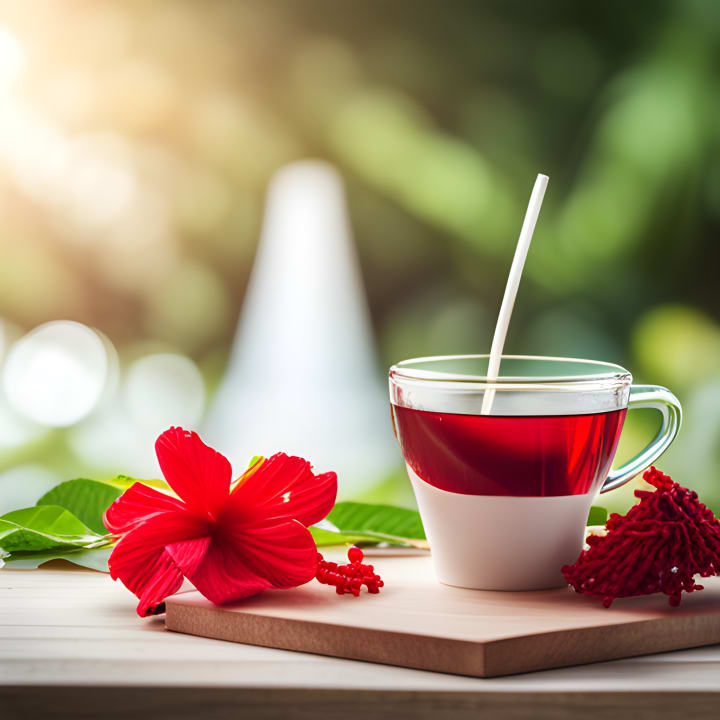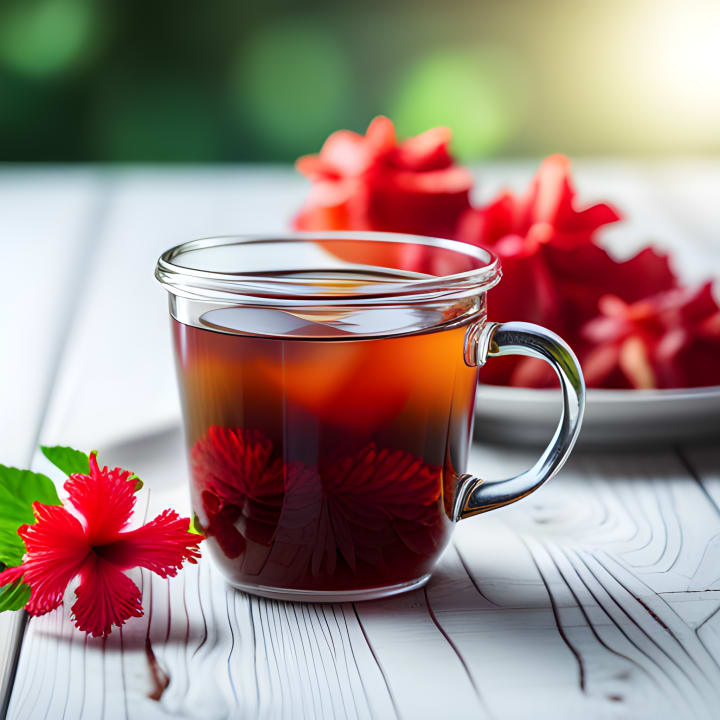Hibiscus Tea Pregnancy: Exploring the Benefits and Risks
Healthy Lifestyle During Pregnancy

When it comes to maintaining a healthy lifestyle during pregnancy, expectant mothers often seek information about suitable food and beverages. One topic that has gained attention is the consumption of hibiscus tea during pregnancy. In this article, we will delve into the potential benefits and risks associated with hibiscus tea and pregnancy. So, if you're an expecting mother wondering whether hibiscus tea is safe for you, keep reading to find out more.
Table of Contents
1. Introduction
2. What is Hibiscus Tea?
3. Nutritional Profile of Hibiscus Tea
4. Benefits of Hibiscus Tea During Pregnancy
5. Risks and Precautions
6. How to Safely Consume Hibiscus Tea During Pregnancy
7. Conclusion

Hibiscus tea is a vibrant herbal infusion made from the petals of the hibiscus plant, scientifically known as Hibiscus sabdariffa. This tropical plant is native to Africa but is now cultivated in various regions around the world. The tea is made by steeping the dried hibiscus petals in hot water, resulting in a visually appealing ruby-red brew with a tart and refreshing taste.

Nutritional Profile of Hibiscus Tea
Hibiscus tea offers a range of nutrients that can be beneficial during pregnancy. It is rich in vitamin C, antioxidants, and minerals such as iron and calcium. Additionally, it contains compounds like anthocyanins and flavonoids that contribute to its vibrant color and potential health benefits.

Benefits of Hibiscus Tea During Pregnancy
1. Rich in Vitamin C
During pregnancy, it is important to maintain adequate vitamin C levels for the healthy development of both the mother and the baby. Hibiscus tea provides a natural source of vitamin C, which supports the immune system, collagen production, and iron absorption.
2. Supports Digestion
Many pregnant women experience digestive discomfort, such as bloating and constipation. The natural compounds present in hibiscus tea, including dietary fiber, can help alleviate these issues and promote regular bowel movements.
3. Hydration
Proper hydration is crucial during pregnancy, and hibiscus tea can contribute to your daily fluid intake. Enjoying a cup of hibiscus tea can be a refreshing way to stay hydrated and maintain optimal bodily functions.
4. Blood Pressure Regulation
High blood pressure during pregnancy can pose risks to both the mother and the baby. Some studies suggest that hibiscus tea may have blood pressure-lowering effects, which could be beneficial for pregnant women with mild hypertension. However, it is essential to consult with a healthcare provider before incorporating hibiscus tea into your routine.

While hibiscus tea offers potential benefits, it's important to be aware of the associated risks and take necessary precautions during pregnancy.
1. Uterine Contractions and Early Labor
Hibiscus tea has been traditionally believed to have properties that stimulate uterine contractions. While there is limited scientific evidence supporting this claim, it is advisable for pregnant women to avoid excessive consumption of hibiscus tea to minimize the risk of triggering early labor.
2. Interference with Iron Absorption
Although hibiscus tea contains iron, it also contains compounds that can hinder iron absorption. This may be problematic for pregnant women who need to ensure sufficient iron intake for their own health and the development of the baby. It is recommended to separate hibiscus tea consumption from meals or iron supplements to maximize iron absorption.
3. Allergic Reactions
In rare cases, some individuals may experience allergic reactions to hibiscus tea. If you have a known allergy to plants in the Malvaceae family, including hibiscus, it is best to avoid consuming hibiscus tea during pregnancy.
4. Interaction with Medications
Hibiscus tea may interact with certain medications, including antihypertensive drugs and hormone therapies. If you are taking any prescription medications, it is crucial to consult with your healthcare provider before incorporating hibiscus tea into your routine.
How to Safely Consume Hibiscus Tea During Pregnancy
To ensure the safe consumption of hibiscus tea during pregnancy, consider the following guidelines:
1. Consultation with Healthcare Provider
Before incorporating hibiscus tea into your pregnancy diet, it is vital to consult with your healthcare provider. They can evaluate your specific situation and provide personalized advice based on your medical history.
2. Moderate Consumption
To minimize potential risks, it is recommended to consume hibiscus tea in moderation. Limit your intake to one to two cups per day, and ensure that it is part of a well-balanced diet.
3. Quality and Preparation
Choose high-quality hibiscus tea from reputable sources. Ensure that the tea is properly prepared by following the instructions provided by the manufacturer or using professional guidance.
In conclusion, hibiscus tea can offer potential benefits during pregnancy, such as providing vitamin C, supporting digestion, and contributing to hydration. However, it is crucial to be aware of the associated risks, including the potential for uterine contractions and interference with iron absorption. Pregnant women should always consult with their healthcare providers before making any significant changes to their diet or consuming herbal teas like hibiscus tea.
FAQs
1. Can hibiscus tea cause miscarriage?
• While there is limited scientific evidence, excessive consumption of hibiscus tea has been associated with an increased risk of uterine contractions and early labor. It is best to consume hibiscus tea in moderation and consult with a healthcare provider.
2. Is it safe to drink hibiscus tea in the first trimester?
• It is advisable to exercise caution during the first trimester of pregnancy. It is recommended to consult with a healthcare provider before consuming hibiscus tea or any herbal teas during this critical phase.
3. Can hibiscus tea induce labor?
• Although hibiscus tea has been traditionally believed to stimulate uterine contractions, there is limited scientific evidence to support this claim. However, it is still recommended to avoid excessive consumption to minimize the risk of premature labor.
4. Does hibiscus tea affect fetal development?
• When consumed in moderation, hibiscus tea is not likely to have a significant impact on fetal development. However, it is important to consult with a healthcare provider to ensure a safe and healthy pregnancy.
5. Can I drink hibiscus tea while breastfeeding?
• It is advisable to exercise caution and consult with a healthcare provider while breastfeeding. Hibiscus tea contains compounds that may interfere with iron absorption, and excessive consumption should be avoided.
About the Creator
Amit Kumar
I am a writer who explores the intricacies of human emotions and the wonders of life through captivating narratives. Join me on a journey of imagination, reflection, and inspiration. Let's create magic with words.






Comments
There are no comments for this story
Be the first to respond and start the conversation.